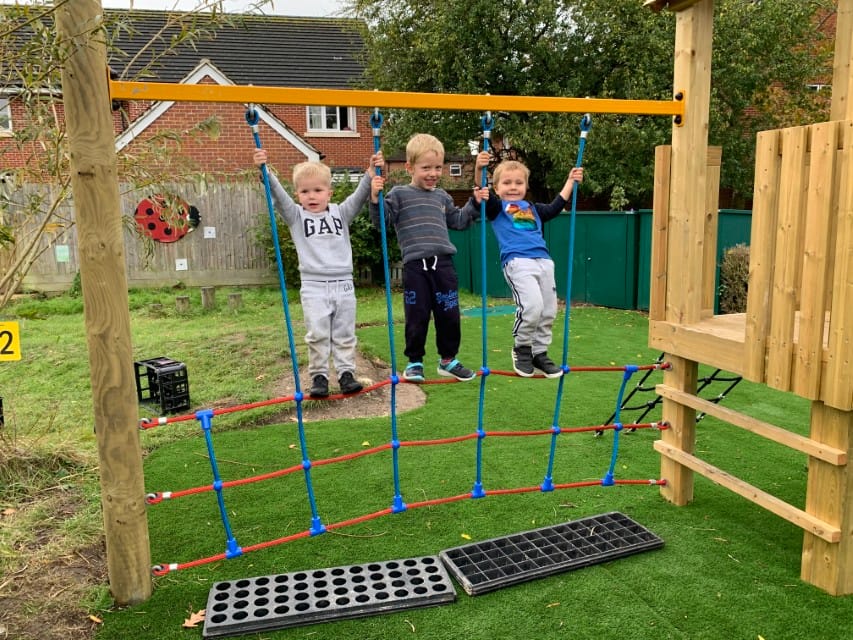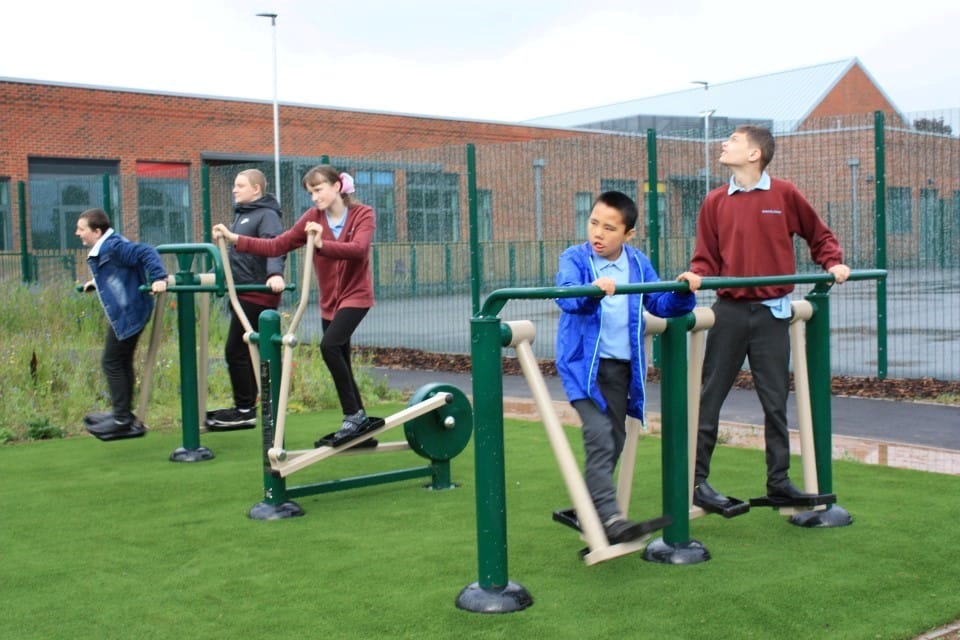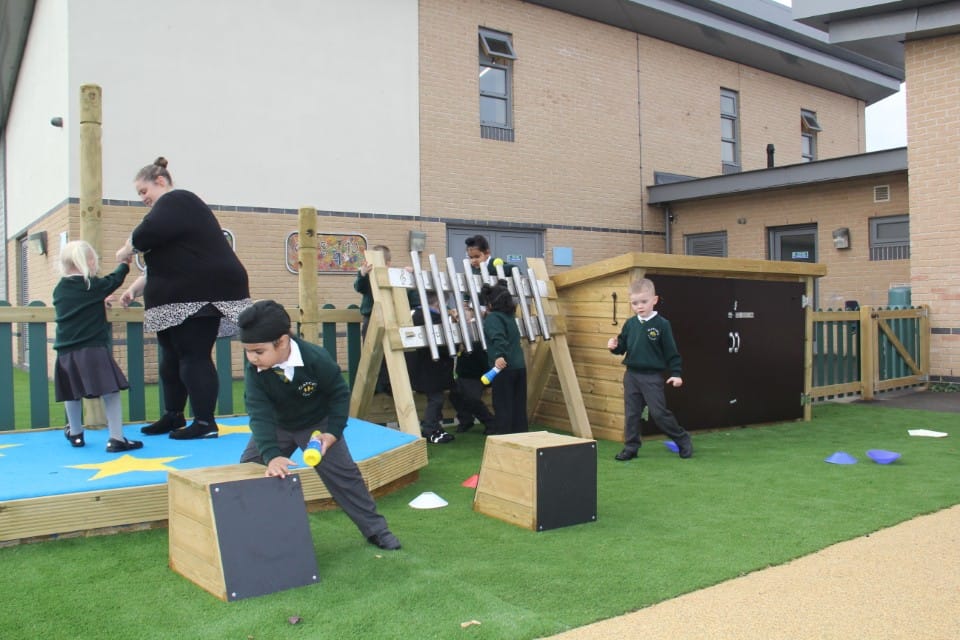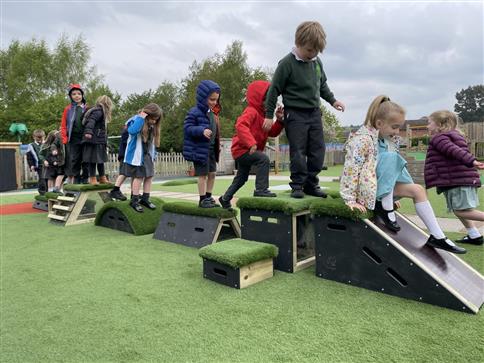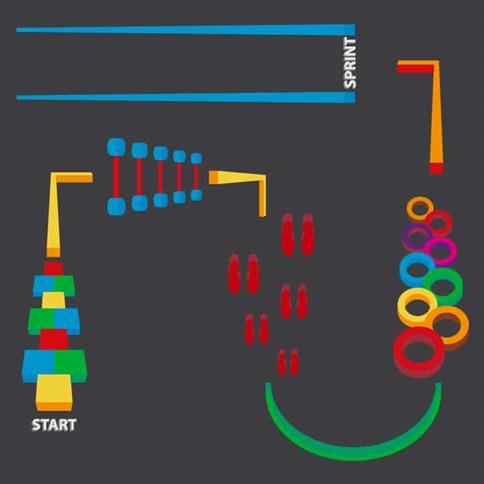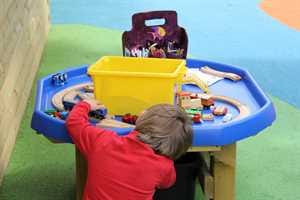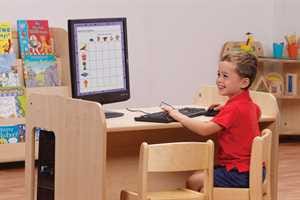
Children's Health
Encouraging Children to Exercise
It’s vital to instil a healthy love for exercise and a drive for a healthy lifestyle in your children from an early age. We can support children’s health and wellbeing by encouraging safe and healthy exercise habits every day, in the fresh air in and out of their playground.
National Fitness Day 2024 - Your Health is for Life
On September 18th 2024, National Fitness Day will take place! Over 10 million people across the UK will take part in a variety of activities to get their blood pumping and their muscles developing.
This year, the theme for National Fitness Day is "Your Health is for Life". The organisers (UKActive) want people to know that the day is no longer about exercising at just that one moment in time, but focusing on establishing a healthy lifestyle to protect and improve your health.
Schools and nurseries across the UK have pledged to take part in this fantastic event by promoting physical activities to get their kids moving and exercising. With obesity rates at an all time high, now is the perfect time to introduce children to healthy lifestyles.
As the years progress, we'll be sure to review this page and update it when necessary to keep all of you updated.
Why Is It Important For Children To Have A Healthy Relationship With Exercise?
It is crucial for children to form a healthy relationship with exercise from an early age as it lays the foundation for a lifetime of good health and well-being. Kids should be taught from an early age both at home and within the school environment, the importance of being active every day.
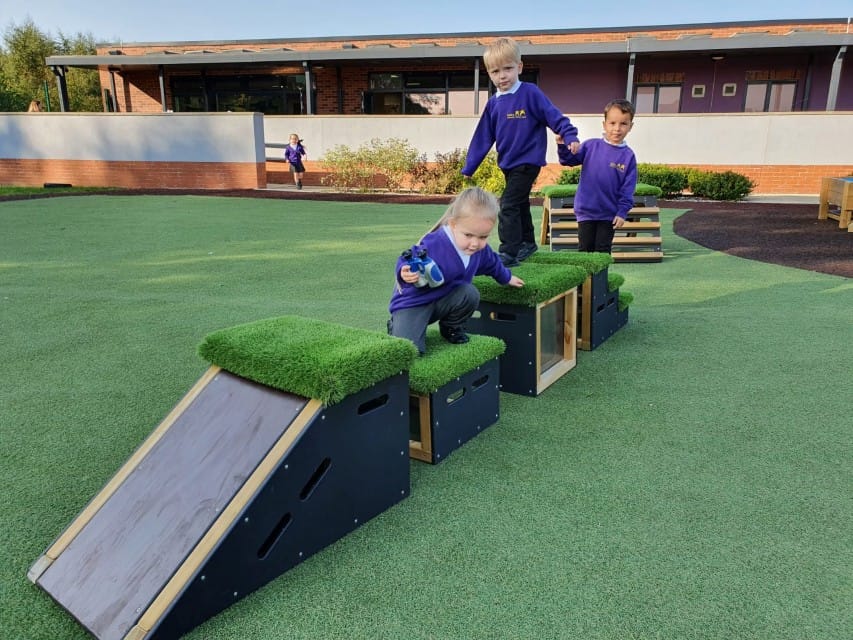
Children’s health and well-being is imperative. By fostering an understanding of the importance of exercise from a young age kids can lead healthier, happier, and more productive lives. By integrating exercise every day into the school curriculum and throughout the school year, educators can provide pupils with the knowledge and skills necessary to lead healthy, active lives.
Below, is a list of benefits that a healthy relationship with exercise can have on children’s health and well-being:
- Physical Health: Regular physical activity helps kids develop strong bones, muscles, and joints. It also supports cardiovascular health and helps maintain a healthy weight.
- Health Maintenance: Exercise helps maintain a healthy weight and can prevent chronic diseases such as obesity, diabetes, and heart disease.
- Habit Formation: Establishing exercise routines throughout the year from a young age sets the foundation for a lifetime of healthy living.
- Mental Health: Exercise is known to improve mood and decrease feelings of depression and anxiety. It also boosts self-esteem and confidence.
- Cognitive Development: Active children show better attention, brain function, and academic performance. Physical activity can enhance concentration and thinking skills.
- Social Skills: Through exercise, especially team sports, children learn teamwork, leadership, and communication skills.
- Emotional Resilience: Physical activity can help children manage stress and build coping skills to deal with life’s challenges.
- Enjoyment and Motivation: Kids who find physical activities that they enjoy are more likely to stay active throughout their lives.
The UK Chief Medical Officer recommends that children and young people aged 5 to 18 should aim for at least 60 minutes of moderate to vigorous physical activity per day, emphasising a mix of aerobic and muscle-strengthening activities.
Encouraging students to be active in ways that are fun is key to fostering a positive attitude towards exercise. It is also advised to reduce sedentary time and break up long periods of not moving throughout the day with some activity.
How to Encourage Healthy Relationships with Exercise for Children
It is important to encourage, support, and celebrate children’s daily activities. Promoting healthy relationships is crucial for children’s well-being.
Therefore, encouraging kids to have a healthy relationship with exercise involves fostering a positive and enjoyable view of physical activity.
In children’s formative years, educators and adults need to be aware of not creating too strong a correlation in their minds between weight and exercise but looking at a more holistic approach to children’s health.
Teachers and adults need to show the importance of exercise and sport and how that makes their body both physically and mentally feel for example: stronger bones, muscles and joints, increased stamina, feeling happier, better concentration, etc. All positives!
So how do adults and educators encourage positive relationships and physical activities in children:
- Model an Active Lifestyle: Children learn by example, so parents and teachers need to lead by example and be active every day themselves.
- Focus on Fun: Make physical activity enjoyable rather than a chore. Activities like playing tag, dancing, or going on family hikes can be fun ways to move.
- Encourage Variety: Offer a different variety of activities every day to keep exercise interesting and engaging.
- Separate Exercise from Appearance: Teach kids that exercise is about feeling good and staying healthy, not just about how they look!
- Incorporate Exercise into Daily Life: Walk or bike to school, take the stairs, and have active playdates.
- Positive Reinforcement: Praise effort and participation rather than skill or performance.
- Avoid Negative Talk: Never use exercise as a punishment or tie it to negative comments about weight or body image.
Remember, the goal is to help children see exercise as a normal and enjoyable part of the day, and life, that benefits their overall health and well-being.
Warm-up and Outdoor Activities To Help Children Exercise
If you're struggling with ideas of exercises and routines to create throughout the school year, make sure you read some of our ideas!
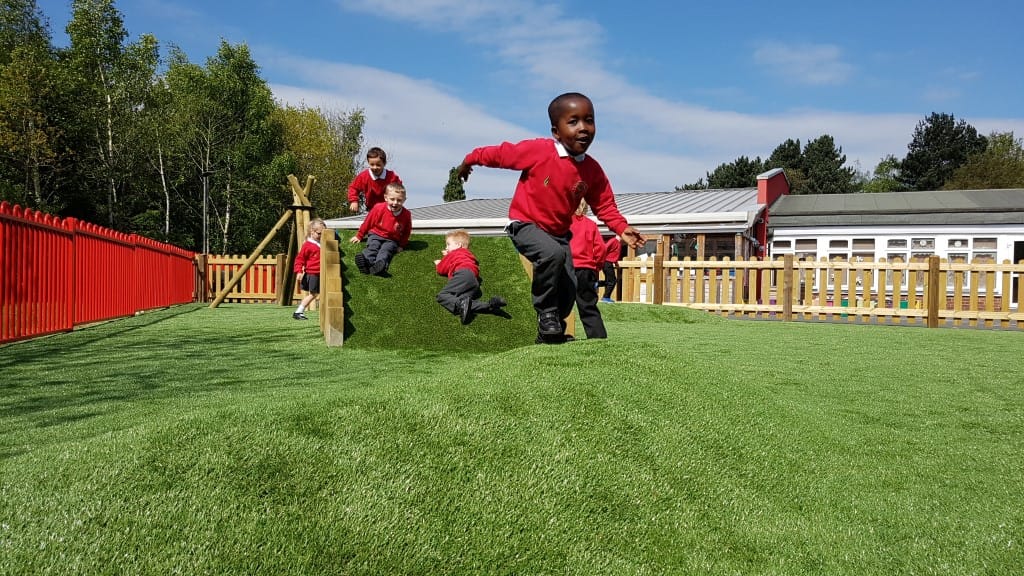
These ideas have been selected from our decades of experience within the playground industry and we know how to keep kids active every day.
Warm-up exercises
Warm-up exercises are essential for kids in the Early Years Foundation Stage (EYFS) and upwards to prepare their bodies for physical activity and prevent injuries. Here are some fun and engaging warm-up exercises suitable for young kids:
- Mirroring: Pair up the kids and have them mirror each other’s movements. This can include kicking, arm movements, and spinning, which are great for cardio and coordination.
- Donkey Tails: Give each child a strip of material to tuck into their waistband, resembling a tail. The kids then try to grab each other’s tails whilst running around, which encourages agility and quick changes in direction.
- Red Light, Green Light: A classic game where kids run on “green”, walk on “yellow”, and freeze on “red”. This helps with listening skills and provides a variety of movements to warm up their muscles.
- The Bean Game: Incorporate different types of beans like “French Bean” (Oooh, la, la!), “Mexican Bean” (Hi Carrumba!), “String Bean” (Walking on tiptoes, stretched up to the sky), “Runner Bean” (run around), “Broad Bean” (Walking around making your body as wide as possible with arms and legs wide apart), where each bean represents a different movement or posture!
- Groups Game: Invite kids to move around the space in different ways, such as walking, hopping, jumping, running, or skipping. Then, call out a number and invite kids to form groups of that size, promoting teamwork and spatial awareness.
It is vital to remember that the key is to make these activities fun and engaging so that the kids enjoy their warm-up. These exercises also help to gradually increase the child’s heart rate and circulation, which is beneficial for their overall health and readiness for more strenuous exercise.
Outdoor Exercise Activities
Outdoor play and exercise activities are a fantastic way for kids in EYFS and upwards to develop their physical skills, as well as their personal, social, and emotional development every day.
Children’s well-being activities are an integral part of their education allowing them to develop physically, emotionally, and socially. Here are some engaging health and well-being activities that are beneficial for kids in EYFS:
- Nature Walks: Encourage exploration and observation by taking kids on walks around the school grounds or local parks. A wonderful addition to any playground would be Pentagon Plays’ Wildlife Area. Where kids can walk around this safe fenced-off environment looking at the wildlife in the pond, planting area, and mini-beast habitat whilst at the same time improving children’s health and well-being.
- Obstacle Courses: Set up simple obstacle courses using cones, hoops, and tunnels to promote gross motor skills. A great resource to use as part of an existing obstacle course or individually is Pentagon Plays’ Get Set, Go! Blocks – The Peaks Set. These moveable climbing blocks bring open-ended active play to any outdoor area as well as aiding children’s health and well-being.
- Gardening: Gardening provides an alternative physical activity with digging, weeding, watering, and planting that is linked to nature and how plants grow but it is also fantastic for their mental health. Pentagon Plays’ 5M Hexagonal Secret Garden Gazebo is a wonderful resource for kids to spend time in and improve their health and well-being.
- Water Play: Use water tables or buckets for splashing and playing, which is not only fun but also helps nurture sensory development. Carrying heavy buckets of water to and from the tables also develops children’s gross motor skills, hence the importance of water play.
- Ball Games: Simple games like catching or kicking a ball around help develop coordination and teamwork skills.
- Balance Activities: Use balance beams or create lines with chalk for kids to walk along and practice their balancing skills. Pentagon Play’s 3D Trail is a fantastic addition to any playground. It will baffle, amuse, and engage little learners as they navigate their way across the trail. A lovely resource for kids to engage and be active with, encouraging them to run, jump, and leap their way through the course!
The above children’s well-being activities not only support physical development but also offer opportunities for children to learn about the world, express themselves, interact with their peers, and have an improved sense of health and well-being.
Product Spotlight
It is key to ensure that these activities are supervised and tailored to the children’s age and abilities for safety and maximum benefit.
If you're school is ready to encourage children to exercise and stay active, then why not browse our fantastic range of Active Play equipment today! Discover how easy it is to keep children active with expertly crafted play equipment by Pentagon Play.
, Browick Road Primary School.png)
